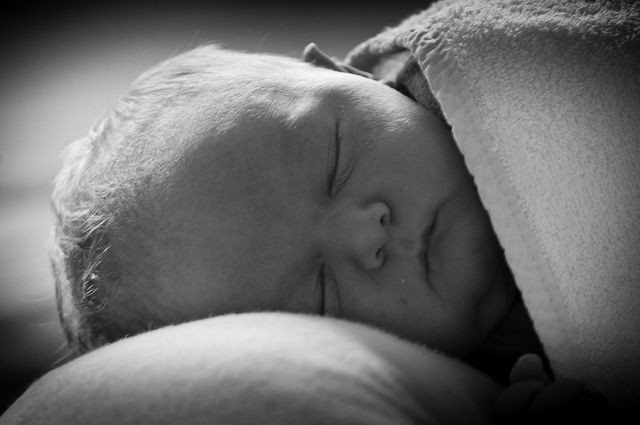Babies Remember Lullabies From The Womb: How Verbal Stimuli Influence Infants In Utero

Be careful talking behind your unborn baby’s back –– he or she might just remember it. According to a new study conducted by researchers at the University of Helsinki in Finland, infants can learn to recognize lullabies in utero, several months before they are born. The remarkable results add to to the growing body of evidence that an individual’s speech and communication skills can be influenced extremely early.
Published in the journal PLoS ONE, the study sought to determine whether an unborn baby can be said to learn certain verbal skills within the womb. While previous research efforts have shown that infants can retain certain words overheard in utero, the current study is among the first to look at longer, more complex verbal stimuli. According to Eino Partanen, doctoral candidate and lead author of the study, the new findings suggest that learning can occur much earlier in life than previously thought.
"Even though our earlier research indicated that fetuses could learn minor details of speech, we did not know how long they could retain the information,” he said in a press release. “These results show that babies are capable of learning at a very young age, and that the effects of the learning remain apparent in the brain for a long time."
To find out just how sharp the unborn mind is, the researchers enrolled 24 pregnant women in their final trimester in an experiment. Half of the mothers-to-be were asked to play the melody of “Twinkle Twinkle Little Star” five days a week for the remainder of their gestational term. Once the young study participants were born, the researchers used electroencephalography (EEG) technology to measure their response to the lullaby.
The researchers found that compared to a control group, babies who had listened to “Twinkle Twinkle Little Star” in utero exhibited a much more pronounced response when the lullaby was played after birth as well as four months later. More specifically, the learning subjects showed stronger event-related potentials (ERPs) –– cerebral responses to independent outside stimuli. “This is the first study to track how long fetal memories remain in the brain,” said principal investigator Minna Houtilainen. “The results are significant, as studying the responses in the brain let us focus on the foundations of fetal memory. The early mechanisms of memory are currently unknown.”
The study thus advances the findings of a paper published earlier this year by the same research team. In “Learning-Induced Neural Plasticity of Speech Processing Before Birth,” Houtilainen and her colleagues produced similar results by exposing unborn babies to certain words. Like the current study, this paper may have tremendous bearing on future prenatal care and research, as it shows just how early learning processes develop.
Source: Partanen E, Kujala T, Tervaniemi M, Huotilainen M. Prenatal Music Exposure Induces Long-Term Neural Effects. PLoS ONE, 2013.



























